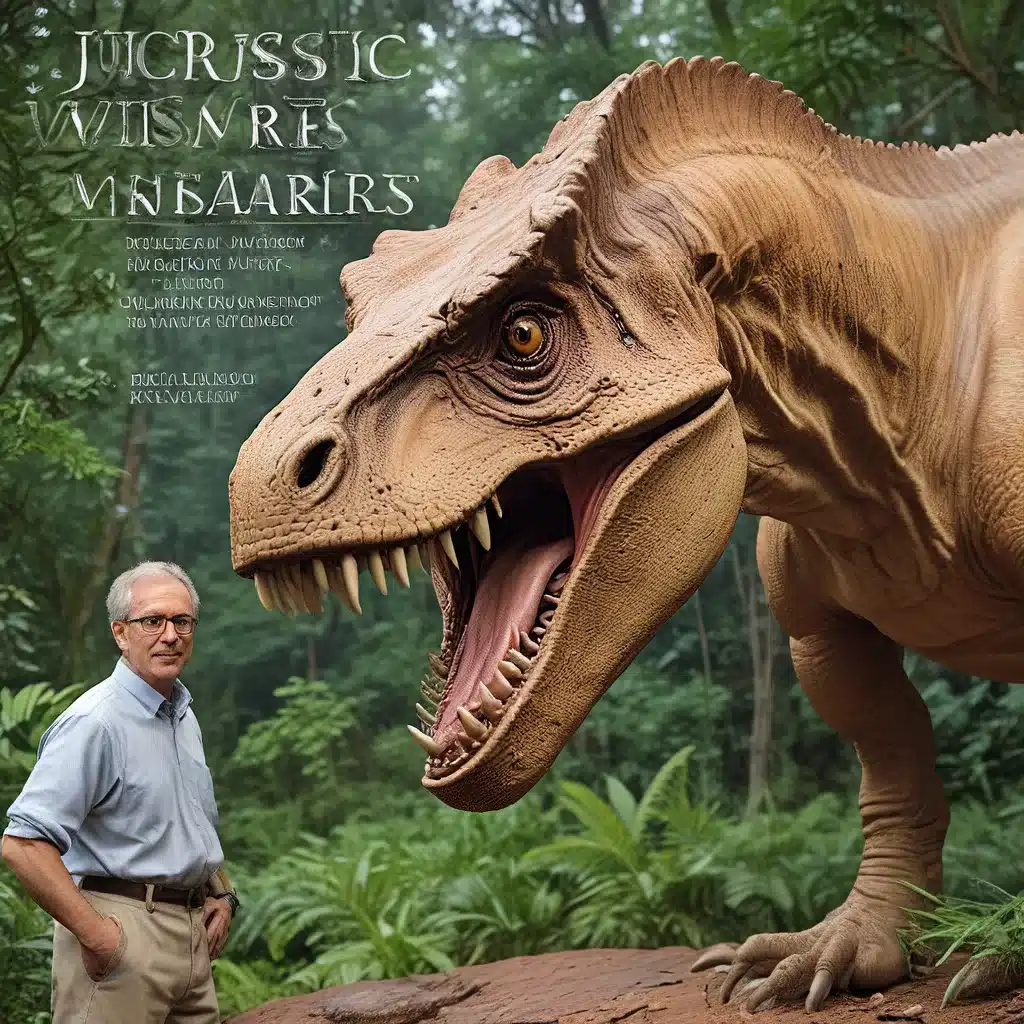
The field of dinosaur studies has long captivated the imagination of researchers, scholars, and the general public alike. From the groundbreaking discoveries of the 19th century to the cutting-edge advancements of modern paleontology, the journey to unravel the mysteries of these ancient behemoths has been a testament to human curiosity and scientific ingenuity. In this article, we delve into the lives and contributions of the visionary pioneers who have shaped the future of this dynamic discipline.
Unlocking the Secrets of the Jurassic Period
The study of dinosaurs has its roots in the early 19th century, when the first significant fossil discoveries were made. Sir Richard Owen, a renowned British paleontologist, is credited with coining the term “dinosaur,” which means “terrible lizard” in Greek. Owen’s pioneering work laid the foundation for the scientific classification and understanding of these prehistoric creatures, paving the way for future generations of researchers.
One such pioneering figure was Othniel Charles Marsh, an American paleontologist who made significant contributions to the field in the late 19th century. Marsh’s rivalry with his counterpart, Edward Drinker Cope, led to a period known as the “Bone Wars,” a fierce competition that fueled the rapid discovery of numerous dinosaur species. These intense rivalries, while at times contentious, ultimately drove the field of dinosaur studies forward, expanding our knowledge of the Jurassic period in ways that continue to impact our understanding to this day.
Revolutionizing Dinosaur Paleontology
As the 20th century dawned, a new generation of scientists emerged, each bringing unique perspectives and innovative approaches to the study of dinosaurs. Barnum Brown, a pioneering American paleontologist, is known for his groundbreaking discoveries, including the first ever-discovered Tyrannosaurus rex specimen. Brown’s meticulous fieldwork and attention to detail revolutionized the way dinosaur fossils were excavated, documented, and studied.
Alongside these trailblazers, a remarkable woman, Paleontologist Mary Anning, made significant contributions to the field of dinosaur studies. Anning’s fossil discoveries and keen observations, often in the face of societal biases against female scientists, paved the way for future generations of women to pursue careers in this dynamic field.
Embracing New Technologies and Analytical Approaches
As the 21st century dawned, the field of dinosaur studies has continued to evolve, with the incorporation of cutting-edge technologies and analytical methods. Paleontologist Jack Horner, renowned for his work on the nesting and parenting behaviors of dinosaurs, has championed the use of advanced imaging techniques, such as CT scans, to gain unprecedented insights into the anatomy and physiology of these ancient creatures.
Moreover, the advent of Phylogenetic analysis, a technique that examines the evolutionary relationships between different species, has revolutionized the way we classify and understand the complex web of dinosaur lineages. Pioneering researchers, such as Paleontologist Paul Sereno, have leveraged this powerful tool to shed light on the evolutionary paths that led to the diverse array of dinosaurs that once roamed the Earth.
Unraveling the Mysteries of Dinosaur Extinction
The ultimate fate of the dinosaurs has long been a subject of intense debate and scientific inquiry. Paleontologist Luis Alvarez and his team made a groundbreaking discovery in the 1980s, proposing that a massive asteroid impact was responsible for the mass extinction of dinosaurs at the end of the Cretaceous period. This “Alvarez hypothesis” has since become a widely accepted explanation for the demise of these ancient giants, sparking further investigations into the environmental and ecological factors that shaped their ultimate downfall.
In recent years, Paleontologist Jack Horner has challenged the traditional narratives surrounding dinosaur extinction, proposing alternative theories that suggest a more gradual decline due to environmental changes. Horner’s work has opened up new avenues of research, encouraging a deeper understanding of the complex interplay between dinosaurs and their environment.
Inspiring the Next Generation of Dinosaur Enthusiasts
The pioneering efforts of these visionary minds have not only expanded our scientific understanding of dinosaurs but have also captivated the public’s imagination. Through their engaging lectures, popular science books, and appearances in media, researchers like Paleontologist Neil Shubin and Paleontologist Nizar Ibrahim have inspired a new generation of dinosaur enthusiasts, igniting a passion for ancient life and the thrill of scientific discovery.
These modern-day trailblazers have leveraged the power of digital technologies, social media, and interactive experiences to bring the world of dinosaurs into the 21st century. By making their work accessible and engaging, they have fostered a deeper appreciation for the rich tapestry of prehistoric life and the ongoing quest to unravel its mysteries.
As we stand at the forefront of a new era in dinosaur studies, the contributions of these visionary pioneers continue to shape the future of this captivating field. Their unwavering dedication, innovative approaches, and relentless pursuit of knowledge have laid the groundwork for generations to come, ensuring that the fascination with these ancient behemoths will endure for years to come.
To explore more about the latest discoveries and insights in the world of dinosaurs, be sure to visit thelostkingdoms.com, a comprehensive resource dedicated to the study of ancient civilizations and their cultural legacies.


